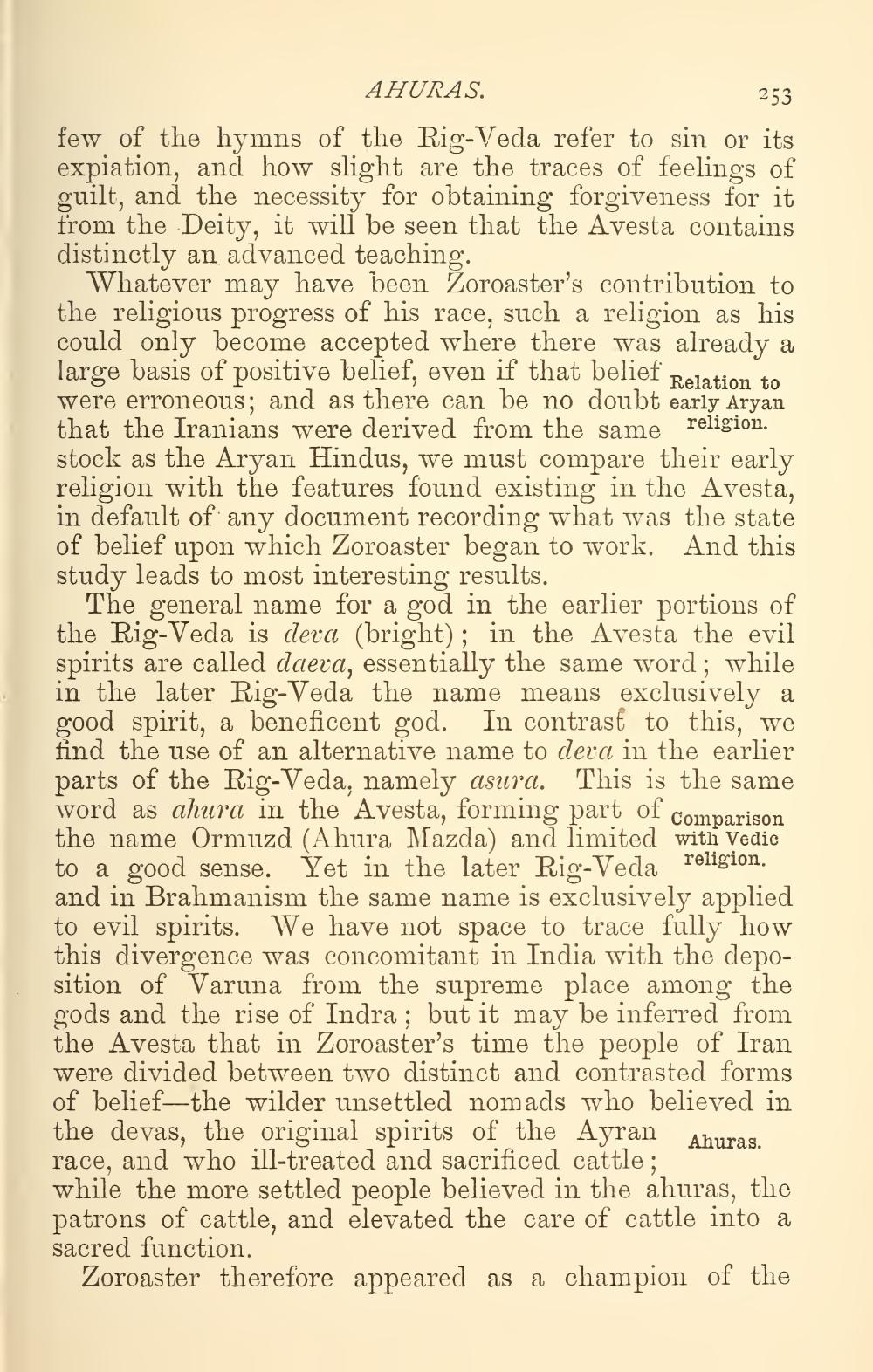________________
AHURAS.
253 few of the hymns of the Rig-Veda refer to sin or its expiation, and how slight are the traces of feelings of guilt, and the necessity for obtaining forgiveness for it from the Deity, it will be seen that the Avesta contains distinctly an advanced teaching.
Whatever may have been Zoroaster's contribution to the religious progress of his race, such a religion as his could only become accepted where there was already a large basis of positive belief, even if that belief Relation to were erroneous; and as there can be no doubt early Aryan that the Iranians were derived from the same religion. stock as the Aryan Hindus, we must compare their early religion with the features found existing in the Avesta, in default of any document recording what was the state of belief upon which Zoroaster began to work. And this study leads to most interesting results.
The general name for a god in the earlier portions of the Rig Veda is deva (bright); in the Avesta the evil spirits are called daeva, essentially the same word; while in the later Rig-Veda the name means exclusively a good spirit, a beneficent god. In contrast to this, we find the use of an alternative name to deva in the earlier parts of the Rig-Veda, namely asura. This is the same word as ahura in the Avesta, forming part of Comparison the name Ormuzd (Ahura Mazda) and limited withi Vedic to a good sense. Yet in the later Rig Veda religion. and in Brahmanism the same name is exclusively applied to evil spirits. We have not space to trace fully how this divergence was concomitant in India with the deposition of Varuna from the supreme place among the gods and the rise of Indra; but it may be inferred from the Avesta that in Zoroaster's time the people of Iran were divided between two distinct and contrasted forms of belief—the wilder unsettled nomads who believed in the devas, the original spirits of the Ayran Ahuras. race, and who ill-treated and sacrificed cattle; while the more settled people believed in the ahuras, the patrons of cattle, and elevated the care of cattle into a sacred function.
Zoroaster therefore appeared as a champion of the




